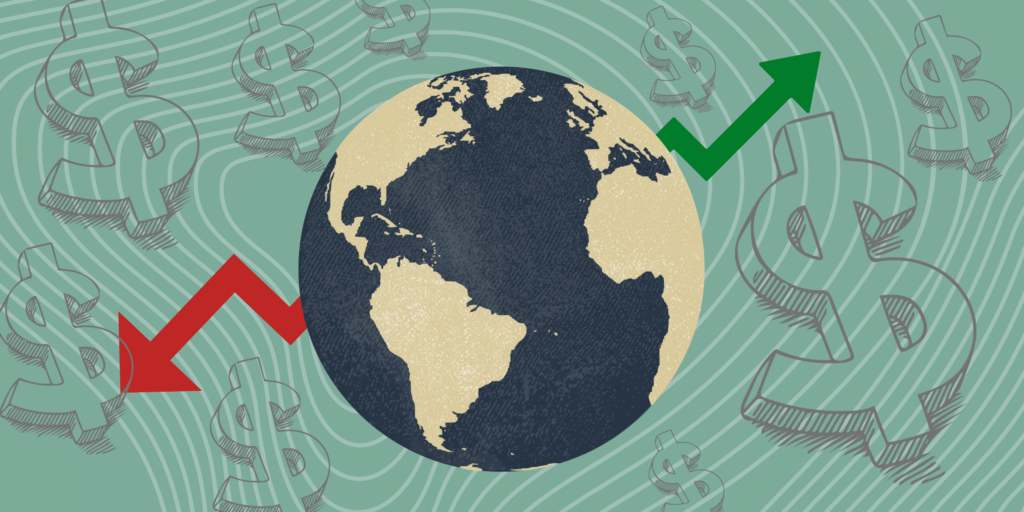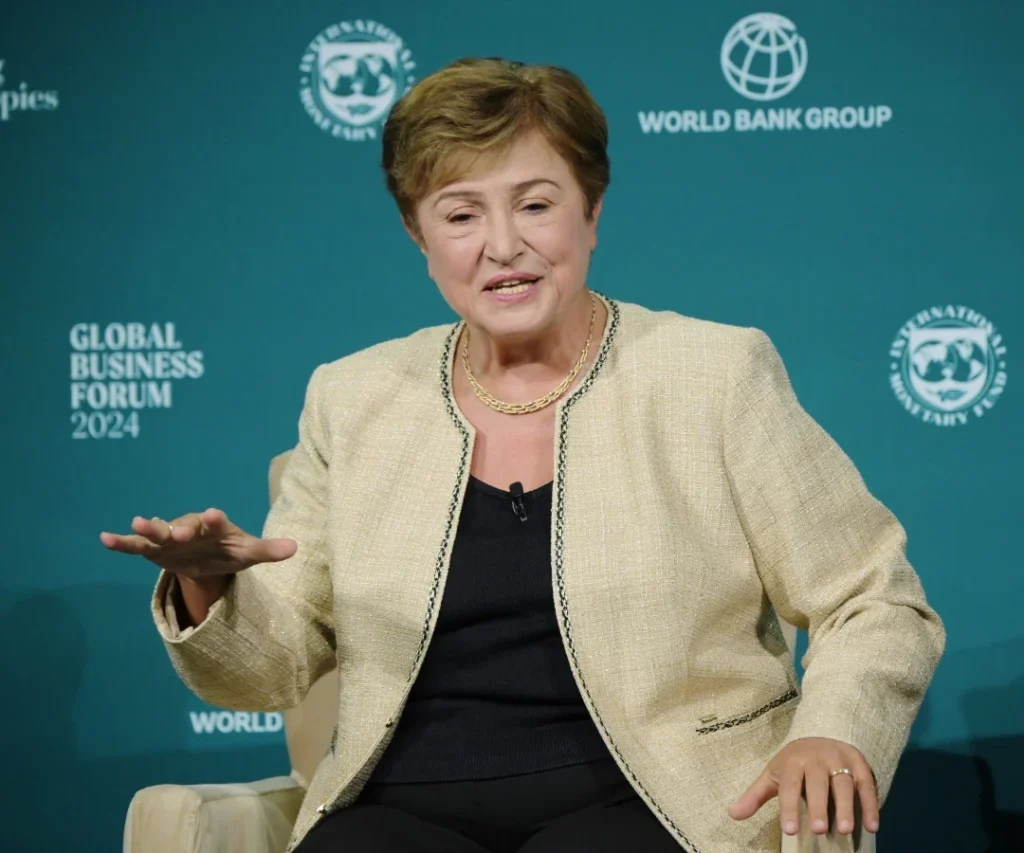
The International Monetary Fund (IMF) has forecast sluggish global economic growth in the medium term, affected by trade tensions and high debt levels. Kristalina Georgieva, managing director of the IMF, warned of the challenges facing the global economy in a speech ahead of the annual meetings of the IMF and the World Bank. Although the outlook is worrisome, Georgieva stressed that there is still room for improving growth, reducing debt and strengthening economic resilience.
Georgieva pointed out the persistence of high prices that especially hurt the poorest, and expressed her concern about the impact that the escalating conflict in the Middle East could have on regional economies and commodity markets. She also warned about the increase in military spending, which diverts funds from priorities such as support for developing countries.

Increasing protectionism and trade restrictions are fragmenting the global economy, limiting trade and slowing economic growth. According to Georgieva, these trends, along with the slowdown in global trade, are hindering economic recovery, increasing the difficulties for emerging and developed countries alike.
Despite these difficulties, Georgieva mentioned some positive signs, such as the decline in global inflation and the stabilization of prices, with an orderly slowdown in the U.S. and European labor markets. She also noted that, although the U.S. is not in recession, the Federal Reserve has begun to cut interest rates, which could ease pressure on the global economy.

However, Georgieva warned that the projected growth will not be sufficient to eradicate poverty, create adequate jobs or generate the tax revenues needed to cope with the growing public debt. The IMF head stressed that a severe adverse scenario could increase public debt by 20 percentage points of GDP above current forecasts, forcing governments to make difficult decisions on resource allocation.
To reverse this trend, Georgieva urged countries to reduce their debt, improve their financial reserves, cut spending and increase productivity. She also stressed the importance of global cooperation in the face of challenges such as climate change, trade and the rapid growth of artificial intelligence, which requires global ethical and normative regulation.







